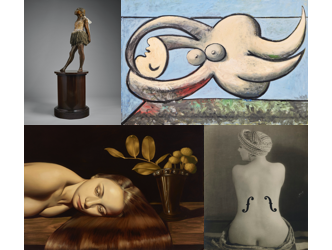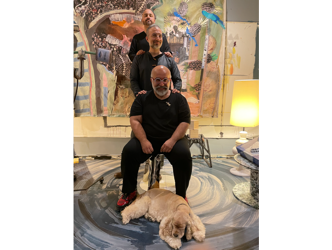Conceptual artist
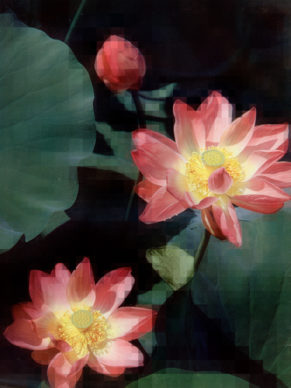
The first thing you might say about the legendary German artist Thomas Ruff (born in 1958) is that he is a photographer. And instantly, with that initial phrase, you would be wrong. With his 35-year career, Thomas Ruff was indeed the student of mythical German conceptual photographers, the couple Bernd and Hilla Becher, in the early 1980s. Nevertheless: he has not practised photography himself since 1989. Thomas Ruff is a purely conceptual artist who uses found photographs – but only photographs – as his raw materials, like a ready-made which he then reworks.
Dusseldorf
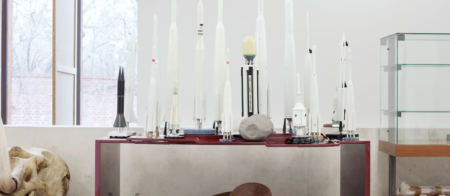
Thomas Ruff studio
He speaks from his vast studio in Düsseldorf where he also stores his collections of items of natural history, rocket ship models, and old photographs.
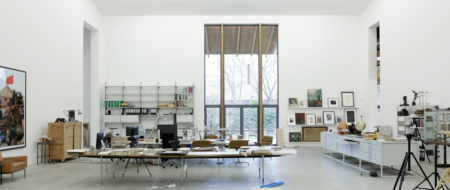
Thomas Ruff studio
Porn found on the internet
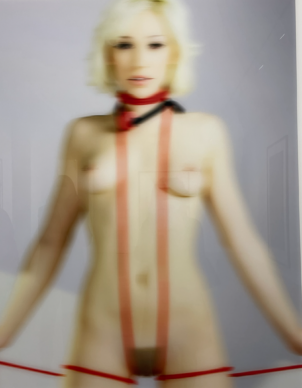
“At a certain point in my career I realized that art photography was good but that there were many other interesting photos in the world that I wanted to work with.” Among his various series, one that has gained renown as the most striking is probably the series dedicated to images of porn found on the internet. Ruff applies a pixelating process to the found photos. The worse the image quality, the more likely the result will be unfaithful to the original once it is enlarged. In the case of the pornographic pictures unearthed from the internet, these are the “sidebar” images posted on websites which function as teasers, only accessible in their larger format in exchange for money. Ruff didn’t pay to obtain the better images. As a result, they are extremely pixelated.
Blurred eroticism
The eroticism he presents is therefore blurred. I asked him why he didn’t use models, for example, within the context of this series. He replies simply and pragmatically that he would never have had all the ideas of perversion that are listed on these sites. “There are all sorts of desires out there, practices that I have never personally experienced. It’s there and I want to show it.”
Zwirner, Taiwan, Dusseldorf
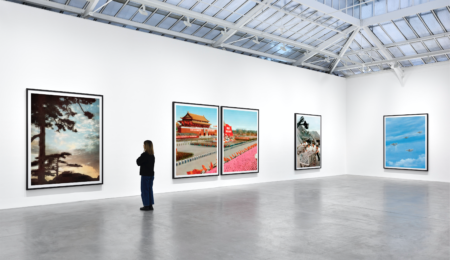
Thomas Ruff @ Zwirner
This time, in a new series that he says he has been working on for two years, he tackles another kind of taboo, that of the great Chinese empire embodied by Chairman Mao. The photos are on view in Paris until 3 March at the Zwirner Gallery, but also in Düsseldorf at the Kunstsammlung Nordrhein-Westfalen museum and from 27 March at the National Taiwan Museum of Fine Arts.
Propaganda magazines
Nothing is ever clear in this artist’s work; his oeuvre invites multiple possible readings. Suggestion is at the heart of his creation. He has taken images of the Great Helmsman that are almost folkloric, nostalgic and appealing, taken from luxury Chinese propaganda magazines aimed at the West from the 1960s, which he has reproduced on a large scale applying his usual principle of stylization through pixelation.
Mao
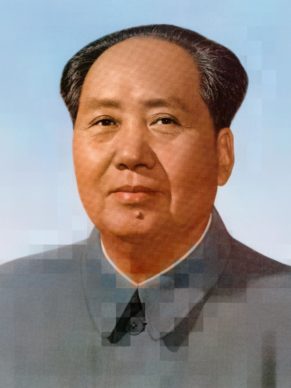
“Mao is an image of power,” he explains. “Images have a stronger impact than written advertising. But today they encapsulate a certain nostalgia. I have a beautiful collection of books on China from the 1960s and 70s, when they wanted to show the world that they were a great country. When they wanted to demonstrate their success in areas of industry, agriculture, the economy. There is evidently a surfeit of pride in these images.
Schizophrenic period
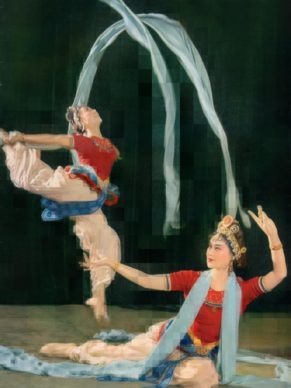
Today, China is a fascinating country that has a huge economic impact on the rest of the world. It cannot be ignored. We are currently living through a schizophrenic period, where in terms of technological standards China is on the same level as the West, but this technological prowess is being used to gain greater control and surveillance powers over the population.
George Orwell
China is fulfilling all the predictions of George Orwell’s 1984. In the 1970s, the West was in this situation due to the terrorist threat, among other things, but in present-day China it is worse.”
Erro
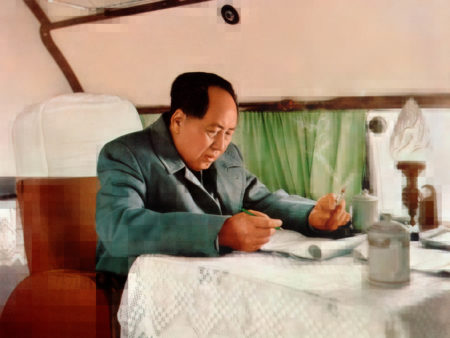
Thomas Ruff
The title of the series is inspired by a work by the Icelandic artist who lives in France, Erró. “Tableaux chinois [Chinese Paintings]: it’s also the title of a book by Erró that I like very much. Erró was one of the first to send works to paint in Bangkok I believe. I thought it was the perfect title for the series and tribute to the artist.”
Chinese romanticism
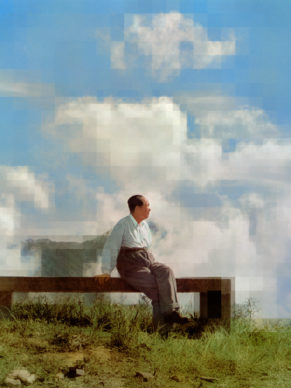
The most fascinating image in this Chinese series is a profile of Mao sitting on a bench, which seems to have been created by a minimalist artist. There is a scene of nature behind him. He looks into the horizon, his thoughts unfathomable. It’s a mixture of German Romanticism and old-style Chinese propaganda. Chinese Romanticism accentuated to some degree by the pixelation effects applied to the surrounding mountains and sky
Pixelation

Regarding the technical side of creating these images, Thomas Ruff explains: “Pixelation represents our technological world. We can see it from very close up in the screen printing of the 1960s but also in the pixelation of today, which I employ here and there, and which symbolizes the widespread distribution of images online.
A question of composition
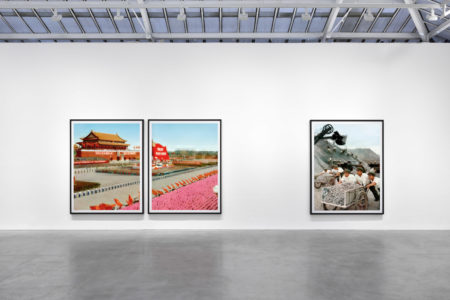
Thomas Ruff @ Zwirner
I combine the two. It is a question of composition,” he says, employing a specifically painterly term, before adding: “If you look at it from far away you think you’re looking at a specific photograph, just a photograph, and if you come closer you can identify the screen. This constitutes a physical experience that I like very much”.
Fuelled by contradiction
Thomas Ruff is a clever mixture of encyclopaedic erudition, nostalgia and fascination for the hyper-contemporary, provocation and a sense of humour, and preoccupation with the infinitely small and the infinitely distant, cloaked in a beautiful amiability. In short, like all fascinating people, he is fuelled by contradictions.
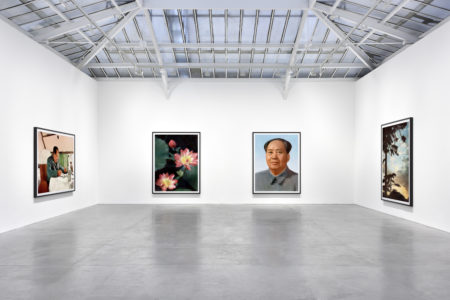
Thomas Ruff@Zwirner
.
Donating=Supporting

Support independent news on art.
Your contribution : Make a monthly commitment to support JB Reports or a one off contribution as and when you feel like it. Choose the option that suits you best.
Need to cancel a recurring donation? Please go here.
The donation is considered to be a subscription for a fee set by the donor and for a duration also set by the donor.

